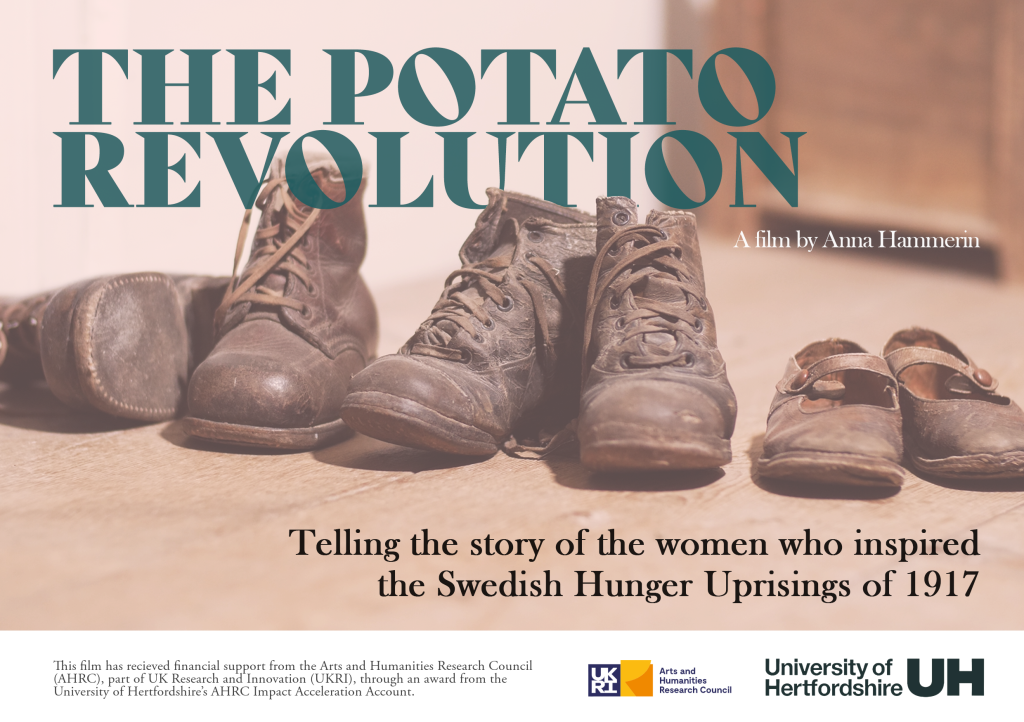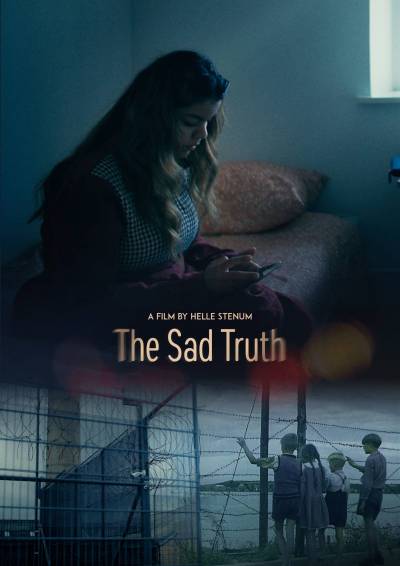The Potato Revolution: Telling the Story of the Women who inspired the Swedish Hunger Uprisings of 1917
 Director: Anna Hammerin
Director: Anna Hammerin
Thursday, 8 May, 15.30, Main building, lecture hall D11
Length: 55 minutes + post-film Q & A
Set against the backdrop of the First World War in 1917, “The Potato Revolution” delves into the untold story of the hunger uprisings in neutral Sweden. As Europe is consumed by war, Sweden grapples with a devastating food shortage that ignites a series of protests, predominantly led by women. Their struggle for survival and justice sparks a significant political transformation, ultimately leading to Sweden’s democratic breakthrough.
Despite the pivotal role women played in these events, their voices have been largely omitted from historical records, resulting in their contributions being forgotten. In 2019, Anna Hammerin, in collaboration with talented film photographer, Adam Jones-Lloyd, embarked on a mission to uncover this obscured history, which in part links to Anna’s own family history. Through the collection of oral histories, exploration of primary-source research, and documentation of rare footage, they shed light on the resilience and courage of these overlooked women who helped shape Sweden’s future.
“The Potato Revolution” weaves together archival materials with poignant interviews, creating a compelling and emotional narrative that resurrects a vital chapter of history. Co-narrated by Ms Karen Brookfield, this film aims to give recognition to those whose efforts have long been overshadowed, ensuring that their legacy is not lost to time. The project team will be joined by Professor Katrina Navickas, historian of protest, social and political movements at the University of Hertfordshire, for the film’s Q&A session.
The Sad Truth
 Director: Helle Stenum
Director: Helle Stenum
Friday, 9 May, 15.30, Main building, lecture hall A1
Length: 75 minutes + discussion with the director
The Sad Truth is a film about young Syrian women in Danish deportation camps who are faced with two choices: return to their country of origin or spend an indefinite time in the camp. Their stories echo stories of the Danish deportation of Jews in the 1930s and of German war refugees in 1945-1947.
We meet Syrian women Sahar, Nadia, Enas and Mariam, who have lost their asylum claim, as well as activists: retired teacher Gerda, law student Rahima, writer Anne Lise and priest Per. We also listen to politicians who defend the deportation law.
The film invites us to reflect on similarities and differences in the situation of refugees and in political rhetoric over time, and also on narrative: who tells these stories and how? How is the Danish deportation policy of the past remembered and told? Who are remembered and who are forgotten?
